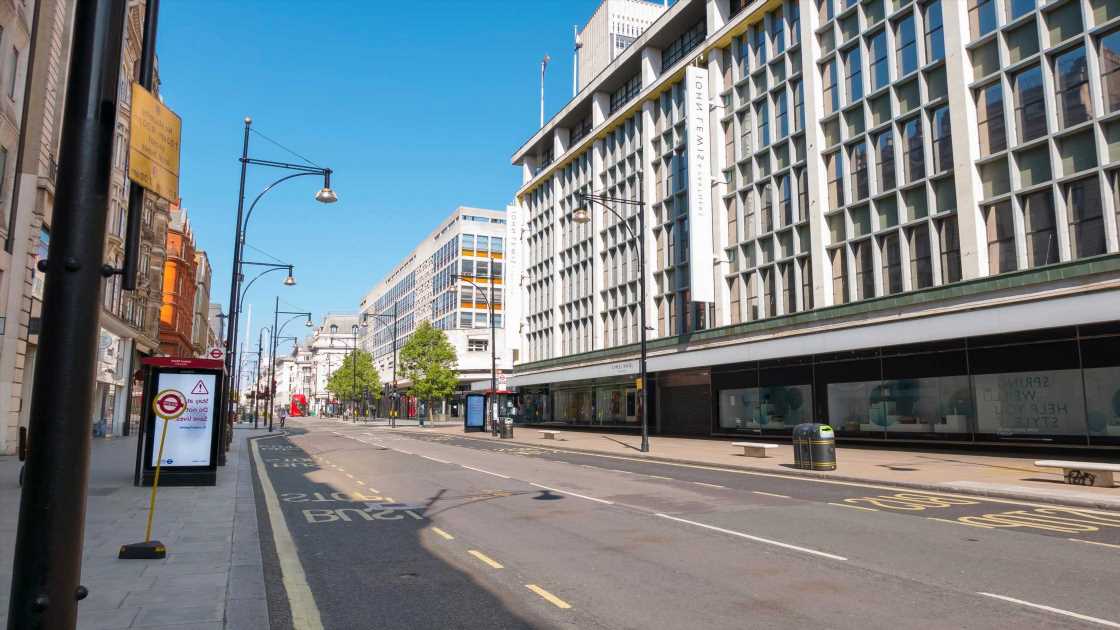LOCKDOWNS are unlikely to be needed again as the UK will manage Covid outbreaks with vaccines, Professor Neil Ferguson says.
The SAGE expert – dubbed Prof Lockdown at the height of the pandemic – said even social distancing measures may be a thing of the past as official figures show a clear fall in cases.
Experts are, however, bracing for an uptick in cases in September when workers are widely expected to return to the office and schools and universities reopen.
But this is expected to be managed without returning to compulsory social distancing.
Prof Ferguson told The Times the pandemic was "going to transition quite quickly in a few months to be more something we live with and manage through vaccination rather than crisis measures".
He said shutdowns could not be ruled out in the event of a dangerous new variant hitting the UK but that "it's unlikely we will need a new lockdown or even social distancing measures of the type we’ve had so far".
The public health expert also said the Euro 2020 football championship had created an "artificially inflated level of contact", leading to his predictions in July that the UK would hit 100,000 Covid cases a day following phase four of unlocking.
"We are not completely out of the woods but the equation has fundamentally changed. The effect of the vaccines has been huge in reducing the risk of hospitalisation and death," prof Ferguson told Radio 4's Today show in late July.
"And I think I'm positive that by late September/October time we will be looking back at most of the pandemic.
"We will still have Covid with us, we will still have people dying from Covid but we put the bulk of the pandemic behind us."
🔵 Read our coronavirus live blog for the latest updates
After Euro 2020 ended cases decreased and Prof Ferguson said the pingdemic also had a "reasonable effect" on making it harder for the virus to spread.
'CAUTIOUSLY OPTIMISTIC'
Fellow SAGE member Professor John Edmunds said he was "cautiously optimistic" that another lockdown would not be needed to bring cases under control again.
Prof Edmunds said there was a need to be "very cautious" about the situation at the moment because previous peaks had been countered by closing down.
"We're not doing that this time," he told Times Radio. "But I don't think we will need to go into a lockdown. I hope not anyway. I very much hope not.
"I'm cautiously optimistic about that."
He added: "There's a long way to go between the sorts of behaviours that we're collectively making now and the average behaviour that we were making before the pandemic. There is a big difference.
"If we go back completely to normal, that will certainly fuel an autumn wave."
The optimistic assessment from the leading scientists came as people in Wales enjoyed new freedoms as lockdown eased there.
From 6am, all restrictions on meeting others were removed and all businesses, including nightclubs, reopened.
We are not completely out of the woods but the equation has fundamentally changed.
Face masks will continue to be required on public transport, in health and social care settings, and in shops.
Venues will be required by law to undertake coronavirus risk assessments, intended to encourage businesses to keep in place measures such as ventilation or social distancing where necessary to keep staff and customers safe.
Adults who are fully vaccinated and young people under the age of 18 will no longer need to isolate if they are a close contact of someone who has coronavirus.
But people must continue to isolate for 10 days if they have symptoms of Covid-19 or if they have a positive test result.
The coronavirus reproduction number, or R value, in England has fallen and is between 0.8 and 1.1, according to the latest Government figures.
Last week, it was between 1.1 and 1.4. R represents the average number of people each Covid-19 positive person goes on to infect.
England recorded a further 28,612 lab-confirmed Covid-19 cases in the UK on Saturday while 46,997,495 people received a first jab – a rise of 35,665 on Thursday – and 39,210,356 have now had two doses, an increase of 162,827.
Source: Read Full Article









